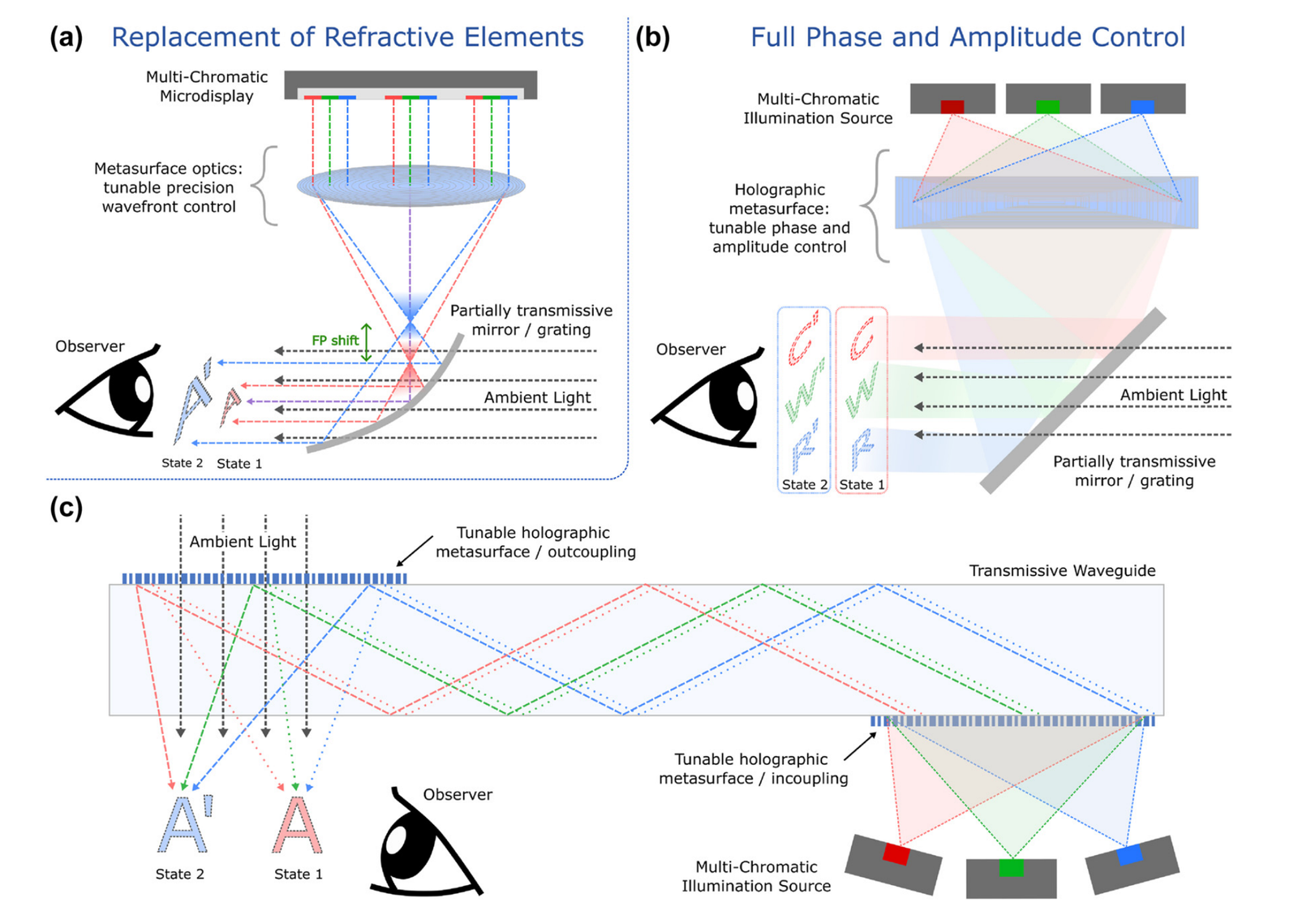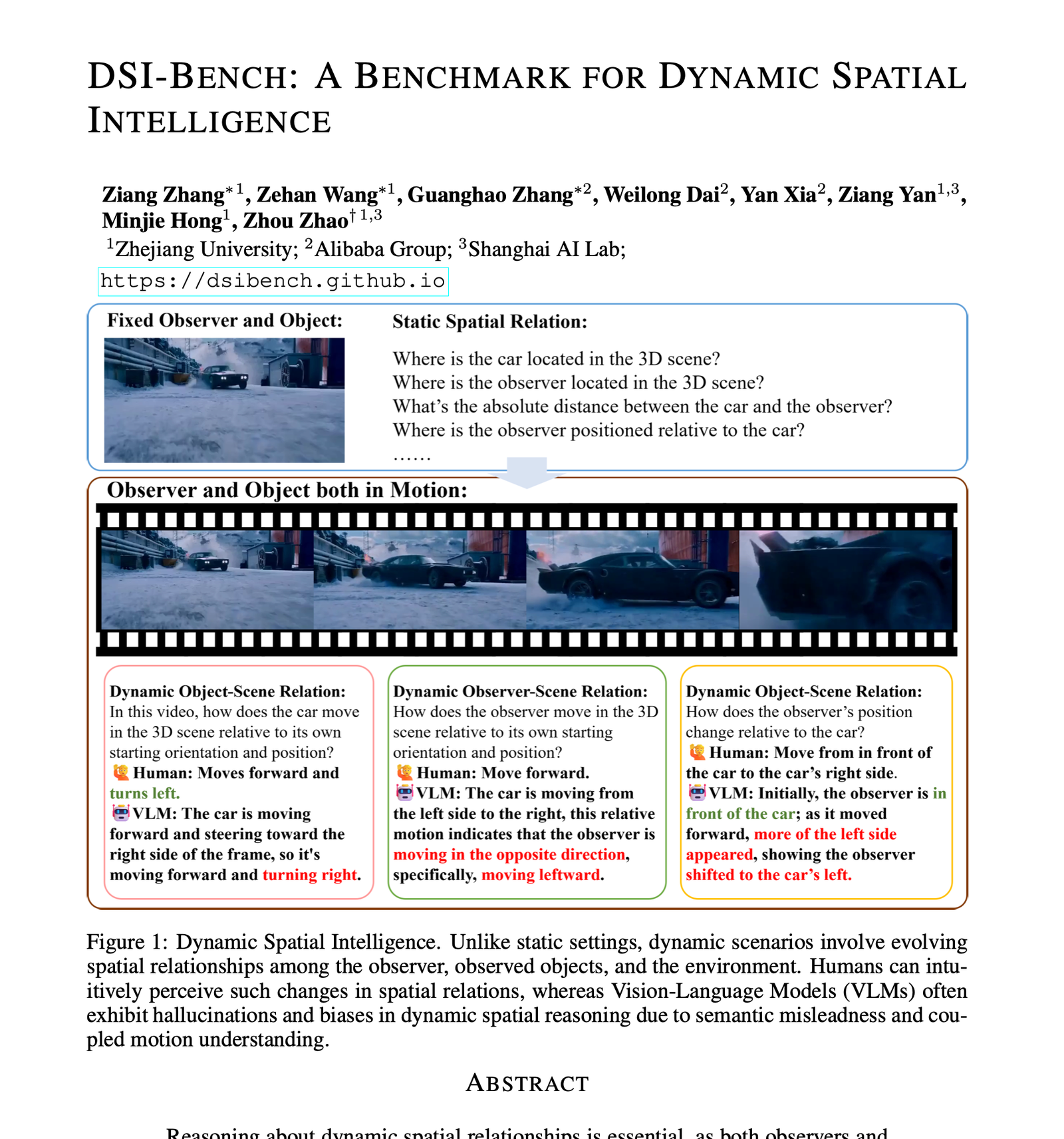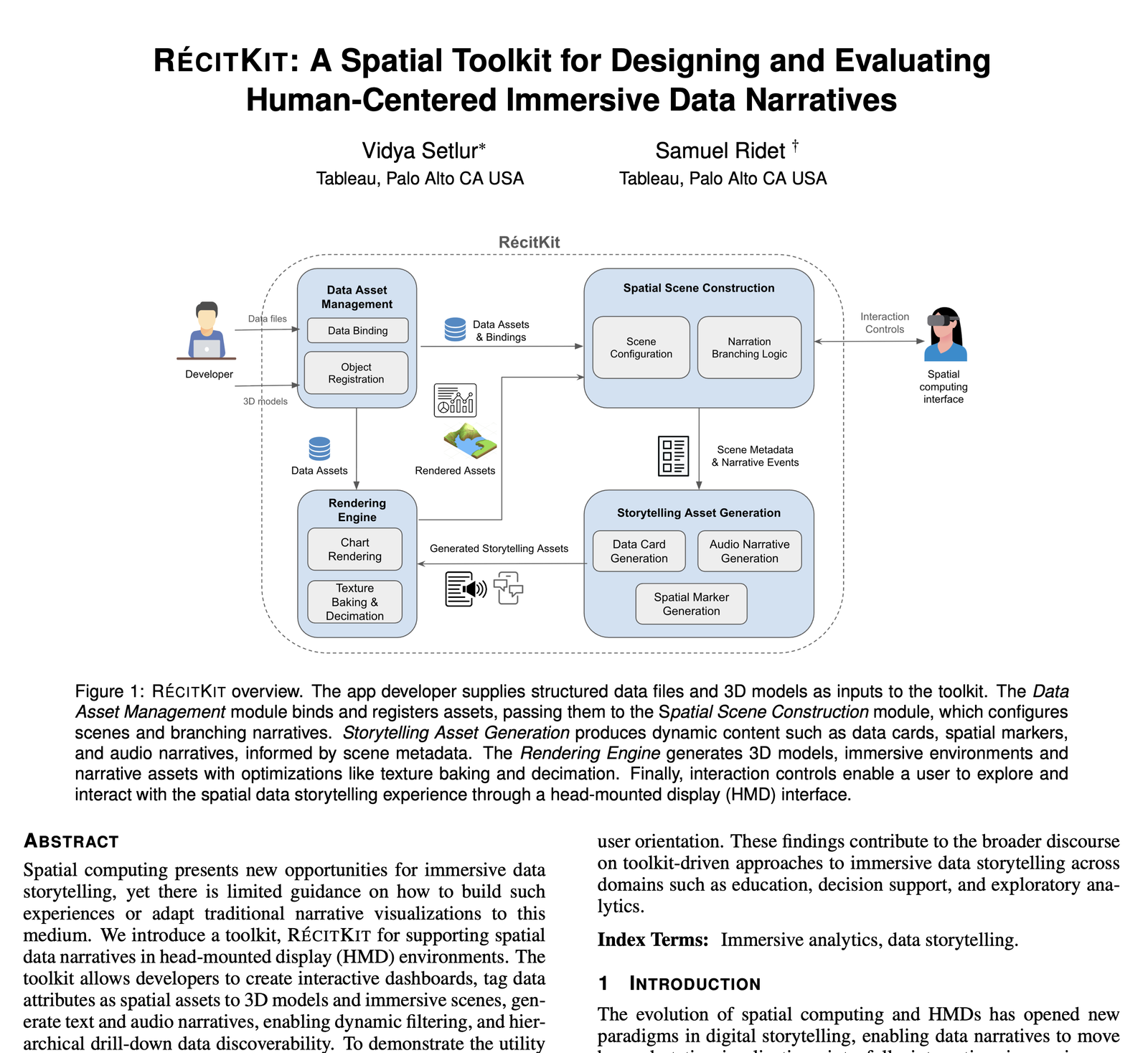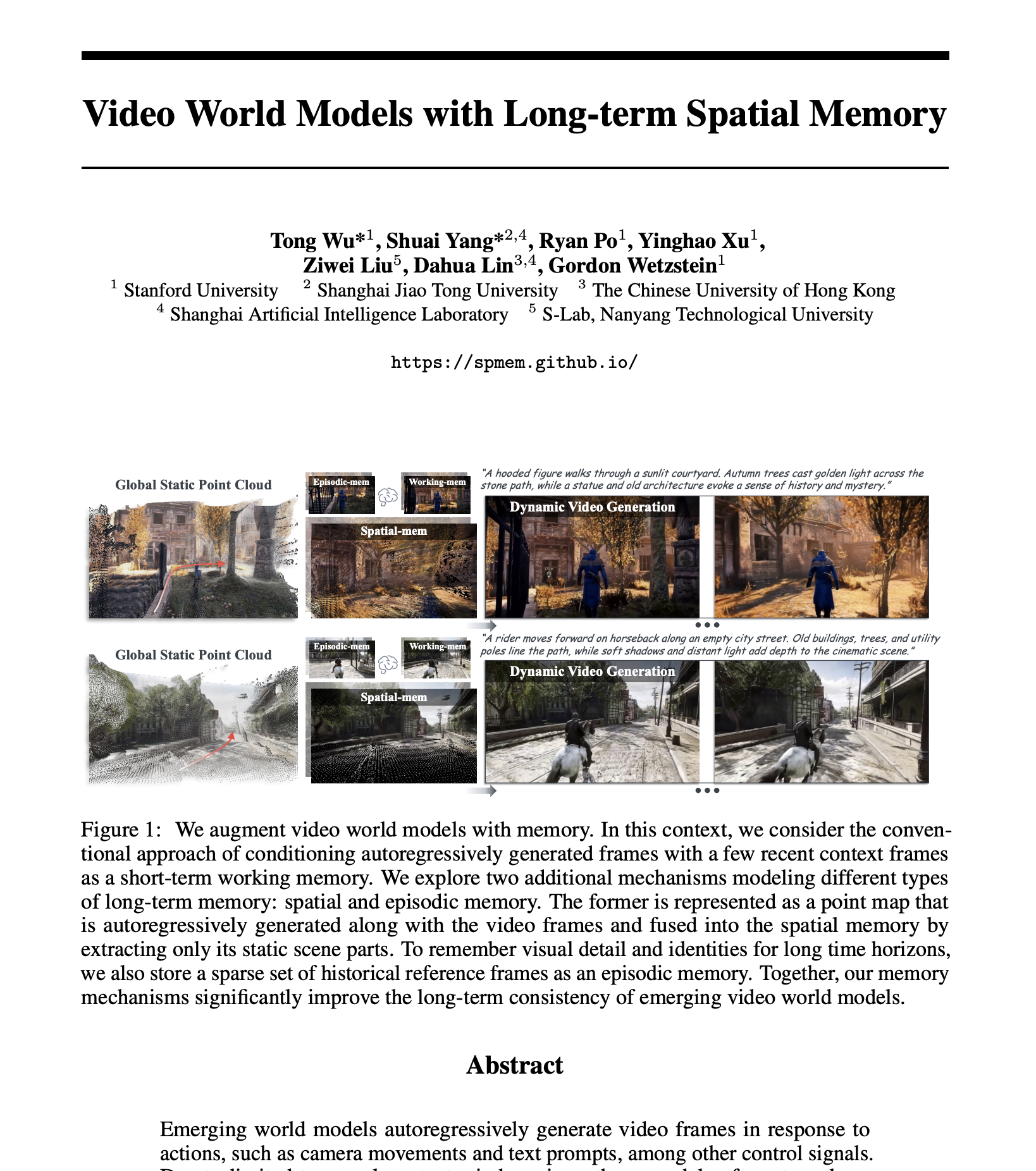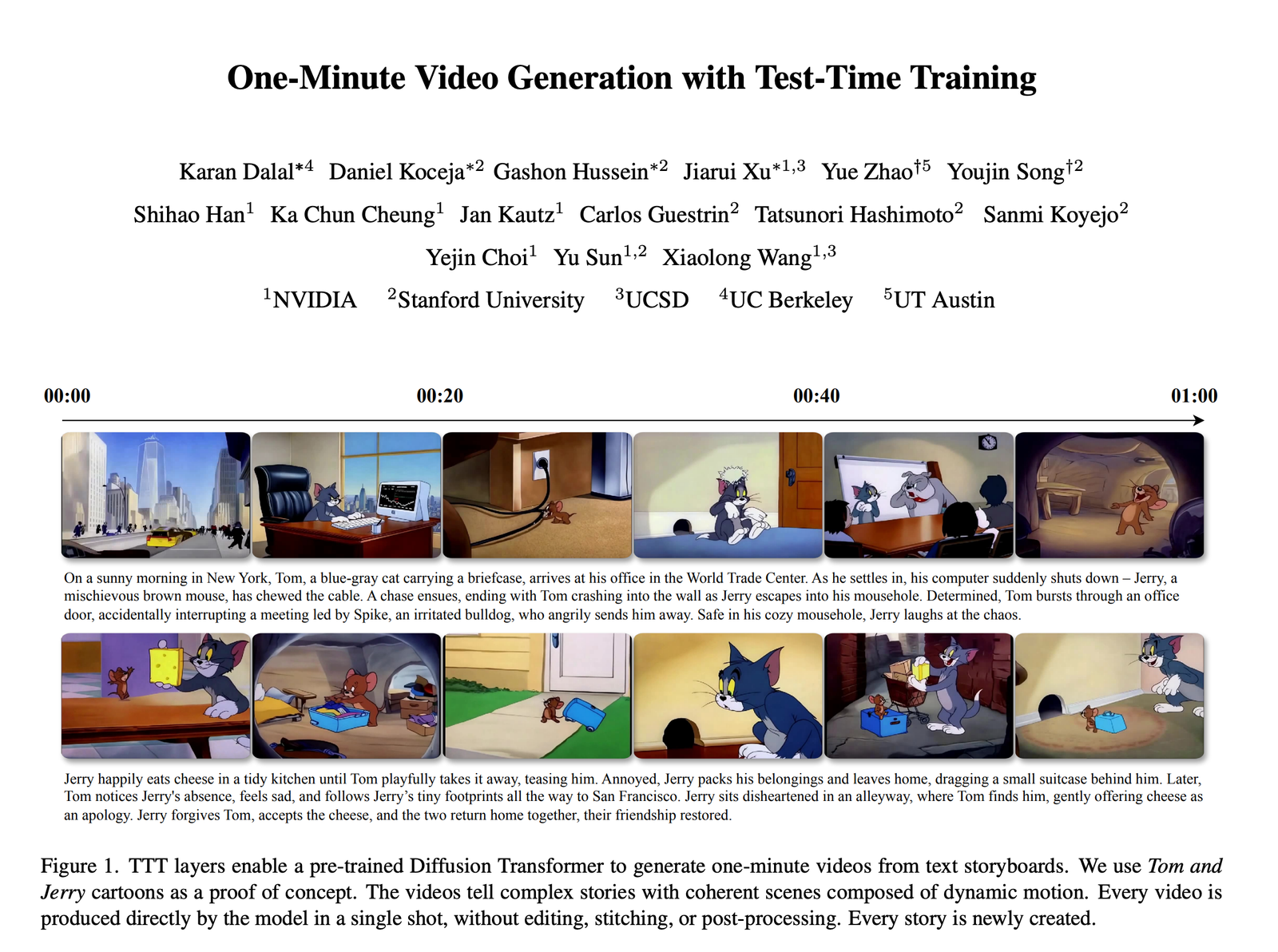🎯 Executive Summary
- Breakthrough – Voltage-controlled holographic metasurfaces dynamically tune phase & color, paving way for adaptive, paper-thin AR panels.
- Impact – One panel substitutes multiple static gratings; headset thickness could drop below 5 mm.
- Stakeholders – Samsung Display, Corning Glass, Mojo Vision.
🧠 ELI5
Pixels here are like chameleons—apply a tiny voltage and they twist light differently, repainting the hologram without moving parts.
Tunable holographic metasurfaces for augmented and virtual reality
Augmented and virtual reality (AR/VR) is transforming how humans interact with technology in a wide range of fields and industries, from healthcare and education to entertainment. However, current device limitations have impeded wider integration. Tunable holographic metasurfaces represent a promising platform for revolutionizing AR/VR devices by precisely controlling light at the subwavelength scale. This article examines current challenges and opportunities from both the AR/VR and holographic metamaterial perspectives and explores how improvements to state-of-the-art approaches can address these challenges. In particular, we propose a focus on easily manufacturable and broadly electrically tunable metasurface technologies including liquid crystal integration and excitonic tuning in 2D materials. Advanced metasurface optimization techniques including machine learning will also be crucial for exploring the large design space.
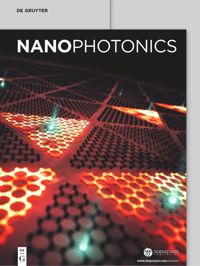
💼 Implications
- BOM saving: swap stacked filters for single metasurface, cost ↓ $25.
- Power draw: expected < 10 mW per eye.
🎮 Widget
“Voltage Slider” – adjust 0 → 3 V, see color & depth cue change live.
📊 Investment Lens
|
Milestone |
$ |
Challenge |
|---|---|---|
|
Pilot fab |
$90 M |
nano-imprint yields |
|
Mass prod. |
$400 M |
reliability, QC |
🎯 Action Items
- Track Nanophotonics citations.
- Watch for panel makers filing “tunable metasurface” patents.


